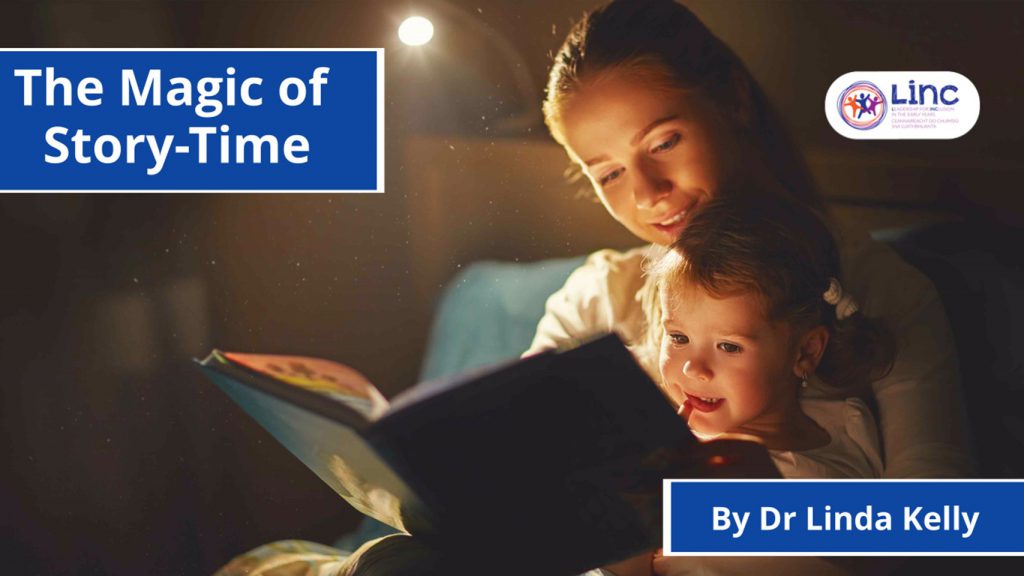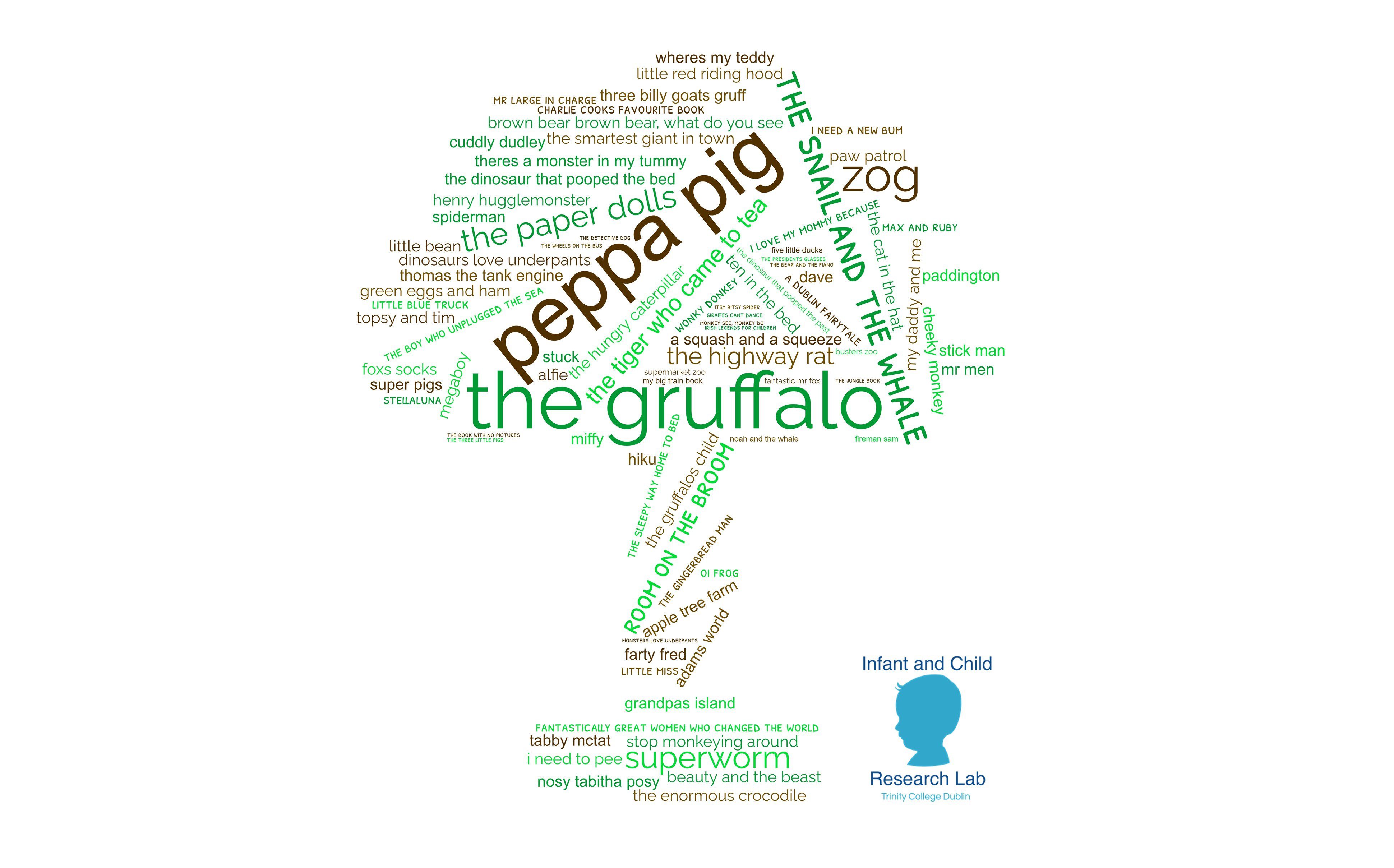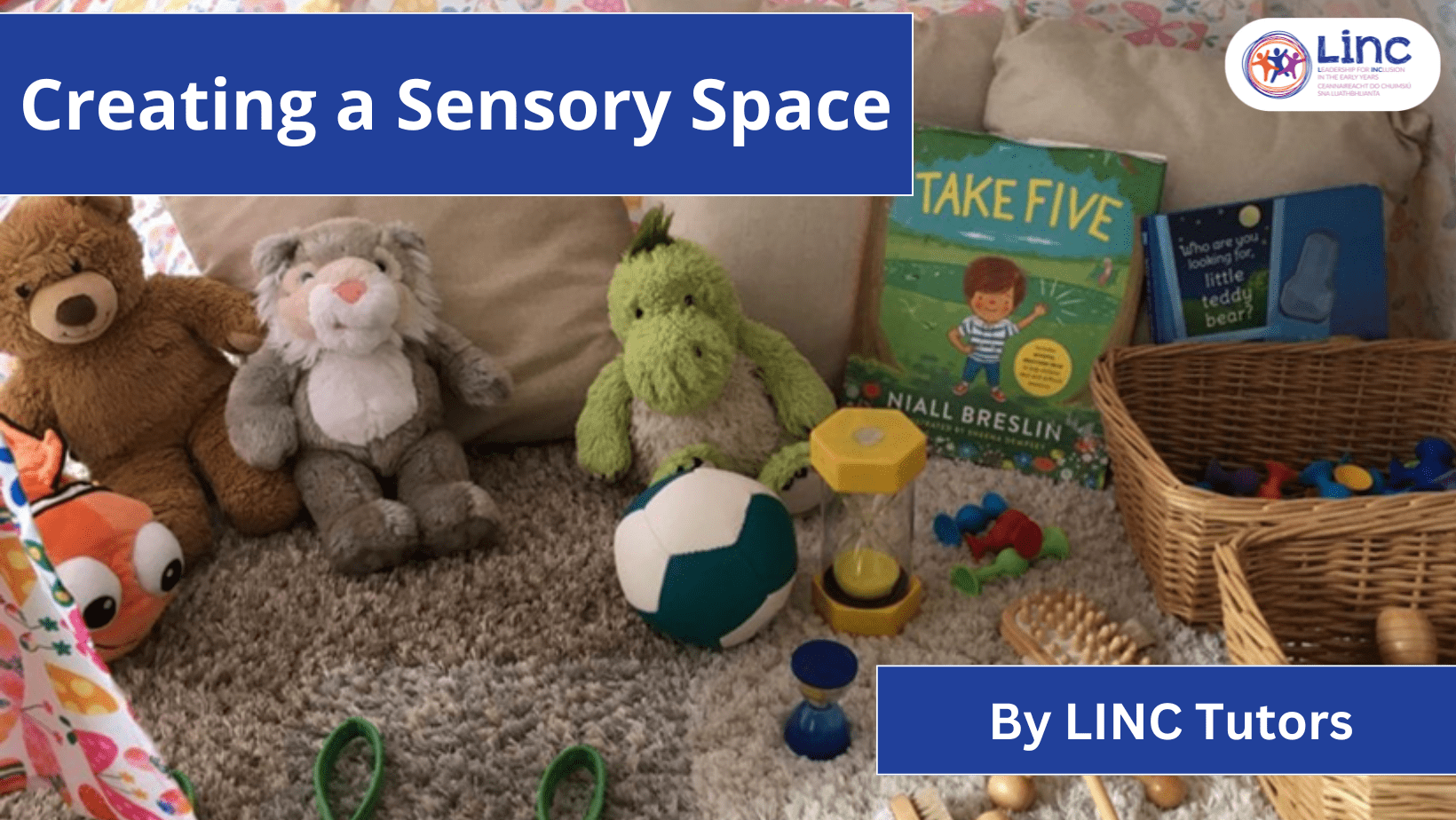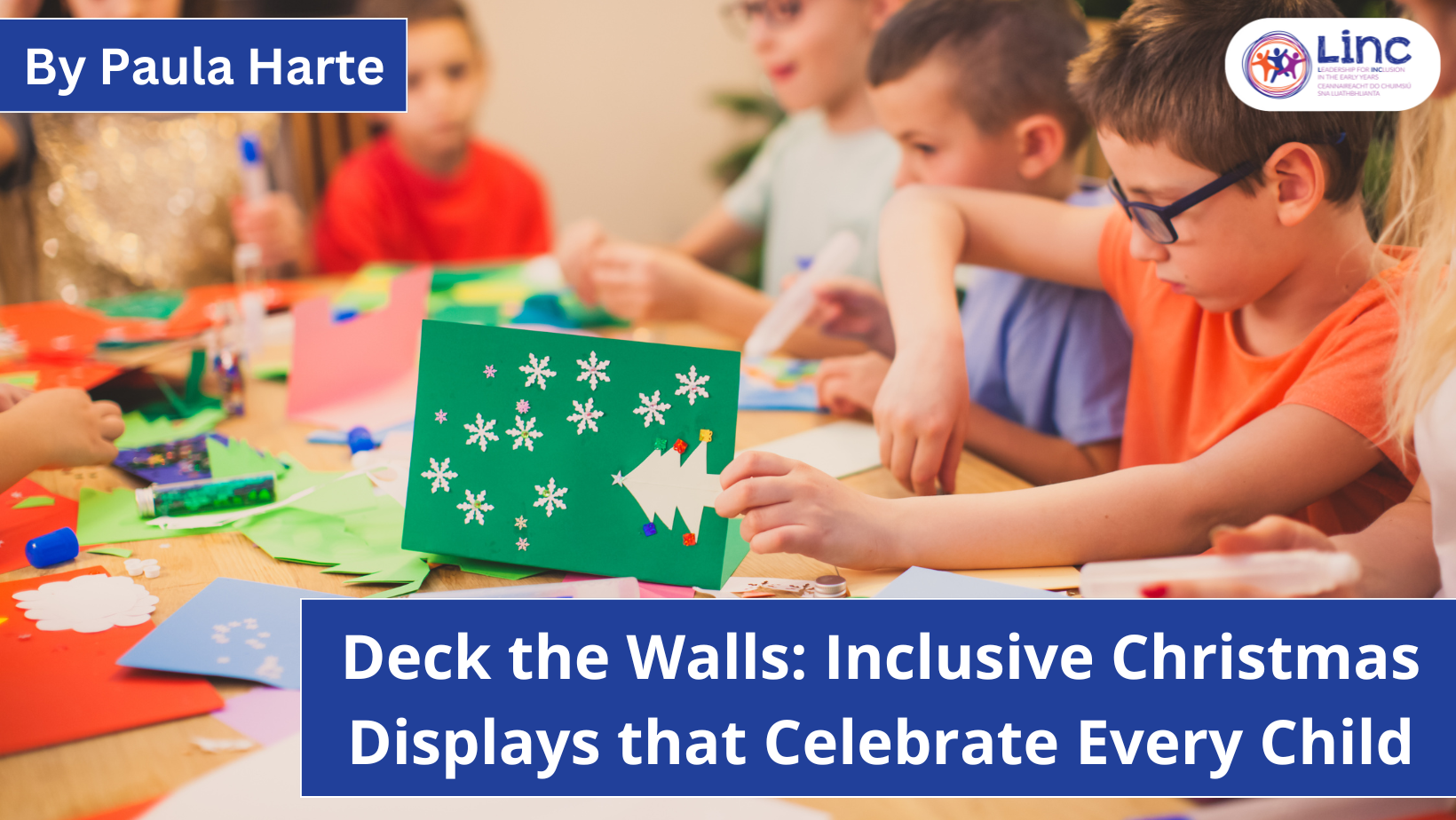The Magic of Story-Time
In this edition of the LINC blog, LINC Researcher Dr Linda Kelly discusses some of the findings of her PHD Research, and how story-telling is an opportunity for adults to encourage language development in young children.

“Books are a uniquely portable magic”
― Stephen King
My PhD research on parent-child interaction led me on a journey down the rabbit hole to the wonderful world of words and stories and their significance for children’s development. Whilst my research focussed on story-time between three-year-olds and their Dads, shared book-reading is an enjoyable and important activity that all adults and children can do together which has far-reaching benefits for children.
Some studies have shown that shared book-reading (adults and children reading together) supports children’s cognitive and social-emotional development[i] whilst others have demonstrated the benefits to children’s later reading and maths skills.[ii] My own research revealed that when parents and children read together more often, children had stronger language skills. Inequalities in the quantity and quality of language young children experience in their environment can be remedied by increasing opportunities for shared book-reading at home or in the Early Learning and Care setting.
Can we bottle the magic of books?
Compared with speech encountered in other day-to-day situations, the language children hear during shared book-reading is often brimming with new and rare vocabulary. Stories also illustrate new ways to string all these wondrous words together, supporting children’s understanding of grammar and tenses. Adults also tend to label objects and actions and ask lots of questions during shared book-reading, which further promotes children’s language development.
Beyond the pages of children’s books, the interactive experience of reading together is key. Children thrive in warm, responsive and stimulating environments. Shared book-reading promotes important back-and-forth conversations between adults and children. Engaging children in conversation is a crucial component of language development[iii].
Dialogic reading, or story-telling which goes beyond the text of the book and involves asking children open-ended questions, repeating what the child has said, and elaborating on the text of the book, is particularly beneficial. I was often surprised by the creative comebacks children in my study provided to questions like “where do you think the monkey in the story is going?” and “why is he feeling lonely?”, all the while practicing their language and reasoning skills.
Enriching these conversations further with decontextualised speech (talk which is separate from the here-and-now or refers to past or future events) is a great way to challenge young children to understand and try out different sentence structures and verb tenses. This may sound complex but in reality it comes quite naturally! In my study, picture books about nature and the seasons encouraged Dads and their children to talk about their memories of trips to the seaside, picking berries to make blackberry jam, and their plans for upcoming celebrations like birthdays and Hallowe’en.
Are some books more magical than others?
Regardless of the book, it is the quality of the interactions between adults and young children during shared-book reading episodes which is most important for young children’s learning. Providing opportunities for children to think and talk, responding to what they have to say, and creating a warm and fun atmosphere is key!
Even new-born babies can benefit from early shared book-reading experiences. Babies love looking at high contrast images and patterns. Books filled with simple black-and-white pictures and patterns capture babies’ attention and support their visual development. Furthermore, this one-on-one time provides rich opportunities for adults to respond to infants’ babbling and gestures and forms the basis of later conversation and language development.
For very young children whose foundational language and attention skills are developing, exploring picture books with adults can provide high quality language and interactive experiences. Most importantly, books that individual children find interesting will encourage them to enjoy reading from an early age. Child interest during shared book-reading is an important factor in understanding how this activity supports their language development.[iv]
What better way to find out what books children are interested in than to ask them! As part of my research,[v] I asked 46 three-year-olds about their favourite books and compiled their responses into a word tree – the bigger the print, the more popular the book! Why not take a look? Happy reading!


Dr Linda Kelly
LINC Researcher
Linda is the Researcher at LINC and Early Childhood Ireland. Prior to joining the LINC team, Linda completed her PhD in Developmental Psychology with the Infant and Child Research Lab, Trinity College Dublin. Her thesis investigated the role of fathers in child development, with a particular focus on father-child conversational turn-taking during play. Linda also holds a joint BA in Psychology and French and an MSc. in Applied Psychology. Her current research interests include observational methods in developmental psychology, early adult-child interaction, play, and child language and cognitive development.
References
[1] Baker, C. (2013) ‘Fathers’ and mothers’ home literacy involvement and children’s cognitive and social emotional development: Implications for family literacy programs’, Applied Developmental Science, 17(4), 184–197, available: https://doi.org/10.1080/10888691.2013.836034
[1] Baker, C. E. (2014) ‘African American fathers’ contributions to children’s early academic achievement: Evidence from two-parent families from the Early Childhood Longitudinal Study-Birth Cohort’, Early Education and Development, 25(1), 19–35, available: https://doi.org/10.1080/10409289.2013.764225
[1] Salo, V. C., Rowe, M. L., Leech, K. A., and Cabrera, N. J. (2016) ‘Low-income fathers’ speech to toddlers during book reading versus toy play’, Journal of Child Language, 43(6), 1385–1399, available: https://doi.org/10.1017/s0305000915000550
[1] Zimmerman, F. J., Gilkerson, J., Richards, J. A., Christakis, D. A., Xu, D., Gray, S., and Yapanel, U. (2009) ‘Teaching by listening: The importance of adult-child conversations to language development’, Pediatrics, 124(1), 342–349, available: https://doi.org/10.1542/peds.2008-2267
[1] Malin, J. L., Cabrera, N. J., and Rowe, M. L. (2014) ‘Low-income minority mothers’ and fathers’ reading and children’s interest: Longitudinal contributions to children’s receptive vocabulary skills’, Early Childhood Research Quarterly, 29(4), 425–432, available: https://doi.org/10.1016/j.ecresq.2014.04.010
[1] Kelly, L. (2020) SPROUT Study: The Significance of the Paternal Relationship on child OUTcomes, http://www.infantandchildresearchlab.com/
You may also like:

LINC Shines a Light on Inclusion for the International Day of Persons with Disabilities 2025
LINC Shines a Light on Inclusion for the International Day of Persons with Disabilities 2025 The Leadership for INClusion in the Early Years (LINC) Programme marked the United Nations International Day of Persons with Disabilities (IDPD) this evening by illuminating...

Creating a Sensory Space
Creating a Sensory Space In this edition of the LINC blog, Claire Butterly, Karina Abbott, Ann Donnellan, Carole Dee, Linda Madden, Margaret Joyce and Paula Harte highlight some considerations when planning a sensory space in your Early Learning and Care setting....

Deck the Walls: Inclusive Christmas Displays that Celebrate Every Child
Deck the Walls: Inclusive Christmas Displays that Celebrate Every Child In this edition of the LINC Blog, former LINC Tutor Paula Harte explores how Christmas displays can bring warmth, creativity, and connection to Early Learning and Care (ELC) and School-Aged...
